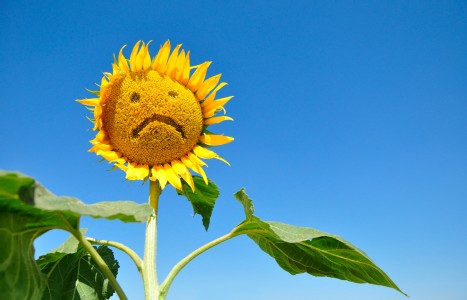Did any of you ever get the feeling in school that it simply was not OK to speak about wanting to be successful? To get into the nitty gritty details of how to make money in practice? Maybe you were even someone like me who was directly told by someone in a position of power that I needed to take what I could get because in private practice, I wouldn’t make money.
The Science of Acupuncture
While traveling in Europe in May, my physicist uncle asked me whether acupuncture was supported by science. And although I did my best, in French, to answer, it has inspired me to examine the question more closely.
First, we must define science. According to Webster's New Collegiate Dictionary, science is defined as "knowledge attained through study or practice" or "knowledge covering general truths of the operation of general laws, esp. as obtained and tested through scientific method [and] concerned with the physical world."
Acupuncture, and the related therapies that make up the comprehensive health care system popularly known in the U.S. as Oriental medicine, is a practice based upon centuries of empirical data, observation and experience, or "knowledge attained through study or practice." However, does it stand up to scientific method? Are there double-blind, placebo-controlled, randomized clinical trials (RCTs) that demonstrate efficacy?
Scientific acupuncture studies are receiving millions in government funding. In 2004, the National Center for Complementary and Alternative Medicine (NCCAM), a branch of the National Institutes of Health, awarded more than $9 million in grants to research various applications for acupuncture and Chinese medicine.
In December 2004, the medical journal Annals of Internal Medicine published a study confirming that acupuncture was effective at easing pain and improving mobility in patients suffering from knee pain caused by osteoarthritis. The clinical trial was one of the longest and largest acupuncture research projects to date. The acupuncture group had better function than either the sham or the education group, and also reported significantly less pain than the two other groups. Brian M. Berman, MD, who led the study and is director of the Center for Integrative Medicine at the University of Maryland School of Medicine, found that "acupuncture is effective for reducing pain and improving physical function in patients with symptomatic knee osteoarthritis who were having moderate pain despite conventional medical therapy." He concluded that acupuncture might have an "important role as adjunctive therapy in a multidisciplinary, integrative approach to patients with osteoarthritis of the knee." Each year more RCTs demonstrate acupuncture's efficacy, leading to increased coverage and integration.
Creating placebo controls in double-blind acupuncture studies versus sham acupuncture has proved challenging. In traditional clinical settings, acupuncture treatment plans are customized for each individual and modified each visit based upon new findings. RCTs seek to eliminate the quirks of individuality through controls and the randomization process. RCTs can be more effective when study participants are randomized to groups based on the acupuncture diagnosis and not solely on the Western diagnostic criteria. Although it poses numerous problems, sham acupuncture can be a potentially valid control for acupuncture research involving acupuncture-naive patients.
Of course, serious flaws exist in Western medical research, including misconduct, failure to publish negative trials, and challenges in demonstrating efficacy. In 1991, the editor of the British Medical Journal stated that only 15 percent of all modern medical therapies have a scientific basis or have been demonstrated to be effective. The journal Nature (2005;435:718-9) found that one third of U.S. scientists have been engaged in serious research misconduct in the past three years. These transgressions included "questionable relationships with research participants, failing to disclose commercial links, overlooking colleagues' use of flawed data, using other people's ideas without giving credit, and ignoring major aspects of requirements concerning the involvement of human participants."
It appears science is in the process of sorting out which treatment approaches may offer the most benefit to patients, as well as revealing both the value and mechanisms of acupuncture. Its inability to do so before now was not acupuncture's failure, but that of science, and we must remember that the knowledge gained from research does not necessarily answer the primary question of what is the best treatment or combination of therapies for the patient.


